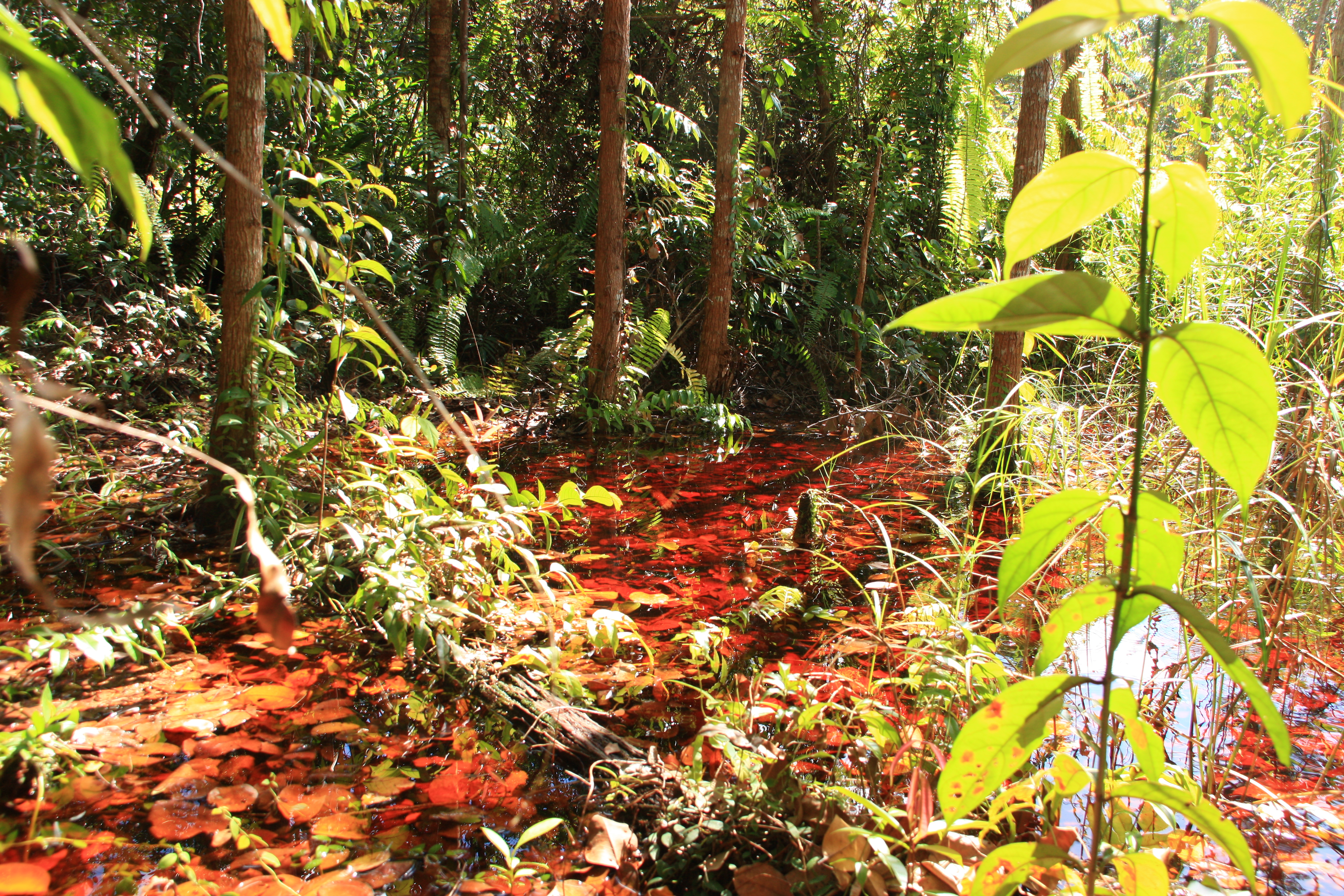
Climate mitigation and adaptation
-
Climate mitigation and adaptation
Peatlands emit CO2 when cleared and drained for agriculture and forestry. Over 5% of global CO2 emissions are caused by peatlands conversion and degradation. Protection and conservation of these areas (including sustainable utilisation), can reduce emissions substantially. Southeast Pahang Peatswamp Forest (PSF) in Peninsular Malaysia, Klias Peninsula PSF in Sabah and Loagan Bunut PSF in Sarawak are amongst the important peatland ecosystems that need to be safeguarded and conserved in Malaysia.
Healthy peatlands can protect people from the negative impacts of climate change such as floods, haze caused by degraded peatlands. Retaining peatlands in their natural condition, especially those in lowland areas will not only prevent excessive Green House Gas (GHG) emission but also prevent soil subsidence which eventually leads to flooding issues. In addition, healthy peatlands prevent salt water intrusion and also provide valuable habitat for wildlife; they host a high number of endemic and endangered flora and fauna species.
The situation is most challenging in Malaysia and Indonesia where drainage for oil palm and pulp production causes approximately 500 million tonnes of CO2 emission per year. Moreover, millions of people that live in the low-lying peatlands in Sumatra, Kalimantan and Sarawak face great flooding risk as the drained peat soils literally evaporate and subside and eventually, the land becomes lower than river levels and (rising) sea levels. These drained peatlands are also hotspots for fires, causing annual haze disasters and alarming greenhouse gas emissions.
Wetlands International provides our expertise and works closely with local authorities in their efforts to improve peatlands management and curb peatland fires, avoid further peatland subsidence and flooding, and conserve and enhance the biodiversity.
The challenge is now to turn policy into practice!
Effective rewetting approaches and methods have been tried and tested and several global frameworks including the CBD, Ramsar and UNCCD urge countries to protect, restore and sustainably use peatlands. The UNFCCC Climate Agreement provides incentives for carbon emission reduction from degrading peatlands.
In Malaysia, Wetlands International has provided technical input into the Multi-diciplinary Assessment for Southeast Pahang PSF and conducted pre-feasibility studies for REDD+ option in Klias Peninsula PSF and Ayer Hitam PSF. Apart from that, we have been actively educating and highlighting concerns relating to the peatlands amongst the government agencies, industries, public and CSOs.
Action is needed now – from business leaders, policymakers, civil society and communities. Funding is urgently needed to conserve and restore the productive, hydrological and ecological functions of peatlands.
We have put together an international roadmap and policy recommendations for accelerating action which helps governments to draw up national strategies to protect and restore their peatlands. Read how you can help to safeguard peatlands for climate change mitigation and adaptation!
